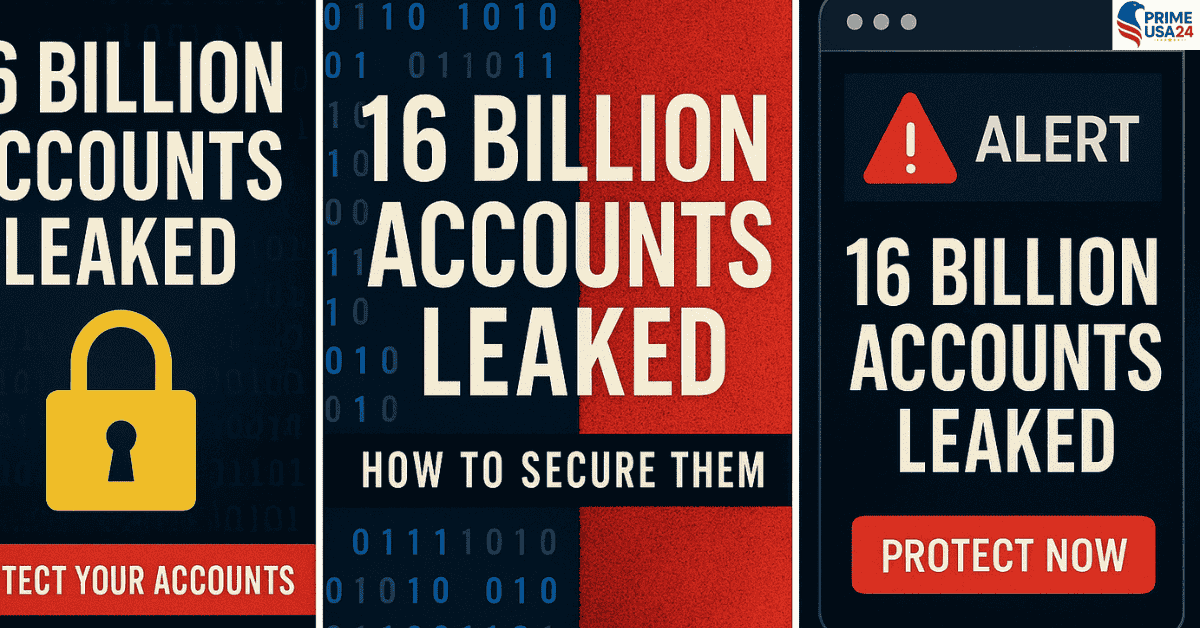The internet is abuzz with alarming news: Around 16 billion accounts leaked from major platforms, including Facebook, Instagram, Telegram, Apple, Google, GitHub, and VPN services, have been compromised in a large-scale data breach. Fresh IDs and passwords have been stolen, putting millions at risk of identity theft, financial fraud, and other cybercrimes.
However, there’s no need to panic! You can take steps to protect yourself. This article shares essential information and practical advice to help you secure your online accounts.
The Shocking Scale of the Breach
A veteran cybersecurity researcher, Jeremiah Fowler, found an encrypted file with over 184 million passwords. This discovery prompted the U.S. Public Interest Research Group to issue a consumer warning about the serious breach.
This breach is unprecedented, affecting 30 different datasets, with some containing over 3.5 million records each. The consequences could impact individuals and organisations globally.
Here’s a breakdown of what was exposed:
- Passwords: The most obvious and immediate threat.
- Cookies: Used to track your online activity and keep you logged in.
- Tokens: Similar to cookies, used for authentication.
- Metadata: Information about your data, which can be used to profile you.
This combination of data gives cybercriminals a powerful toolkit to compromise your accounts.
Essential Steps to Protect Yourself
So, what can you do to mitigate the risk? Here are three crucial guidelines to follow immediately :
1. Strengthen Your Passwords
- Change your passwords immediately for all your important online accounts, especially those mentioned above (Facebook, Instagram, Google, etc.).
- Create strong, unique passwords that are difficult to guess. Avoid using easily identifiable information, such as your name, birthday, or your pet’s name.
- Use a combination of uppercase and lowercase letters, numbers, and symbols.
- Consider using a password manager to generate and securely store complex passwords.
- Never Reuse Passwords: This is a golden rule of online security. Using the same password across multiple accounts makes you vulnerable to security breaches.
2. Enable Two-Factor Authentication (2FA)
- Two-factor authentication (2FA) adds an extra layer of security to your accounts.
- When you log in, you’ll be required to enter a code sent to your phone or email in addition to your password.
- Enable two-factor authentication (2FA) on all platforms that offer it, including Gmail, Facebook, Instagram, and any other sensitive accounts.
- This makes it significantly harder for hackers to access your accounts, even if they have your password.
3. Beware of Phishing Attacks
- Phishing is a deceptive tactic where attackers try to trick you into revealing your password or other sensitive information.
- They may pose as a friend, family member, or legitimate company.
- Be wary of suspicious emails, messages, or links.
- Never share your password or other personal information with anyone online, even if they seem trustworthy.
What Happened to the 16 Billion Accounts Leaked?
Following the discovery of the database, the researcher contacted the website hosting provider, which removed it from public access. However, the reasons for the file’s existence and why it was left unencrypted remain unclear.
Experts warn that this breach could lead to a significant increase in:
- Phishing attacks: Cybercriminals use stolen information to craft convincing scams.
- Account hijacking: Gaining unauthorised access to your online accounts.
- Identity theft: Using your personal information to open fraudulent accounts or commit other crimes.
Sectors such as cryptocurrency, finance, and cloud-based services are particularly vulnerable.
Don’t Be Complacent: Act Now!
It’s easy to think you’re too smart to be hacked. Still, the reality is that cybercriminals are constantly evolving their tactics. As the saying goes, “When it’s meant to happen, it happens.” Take proactive steps to protect your online security.
